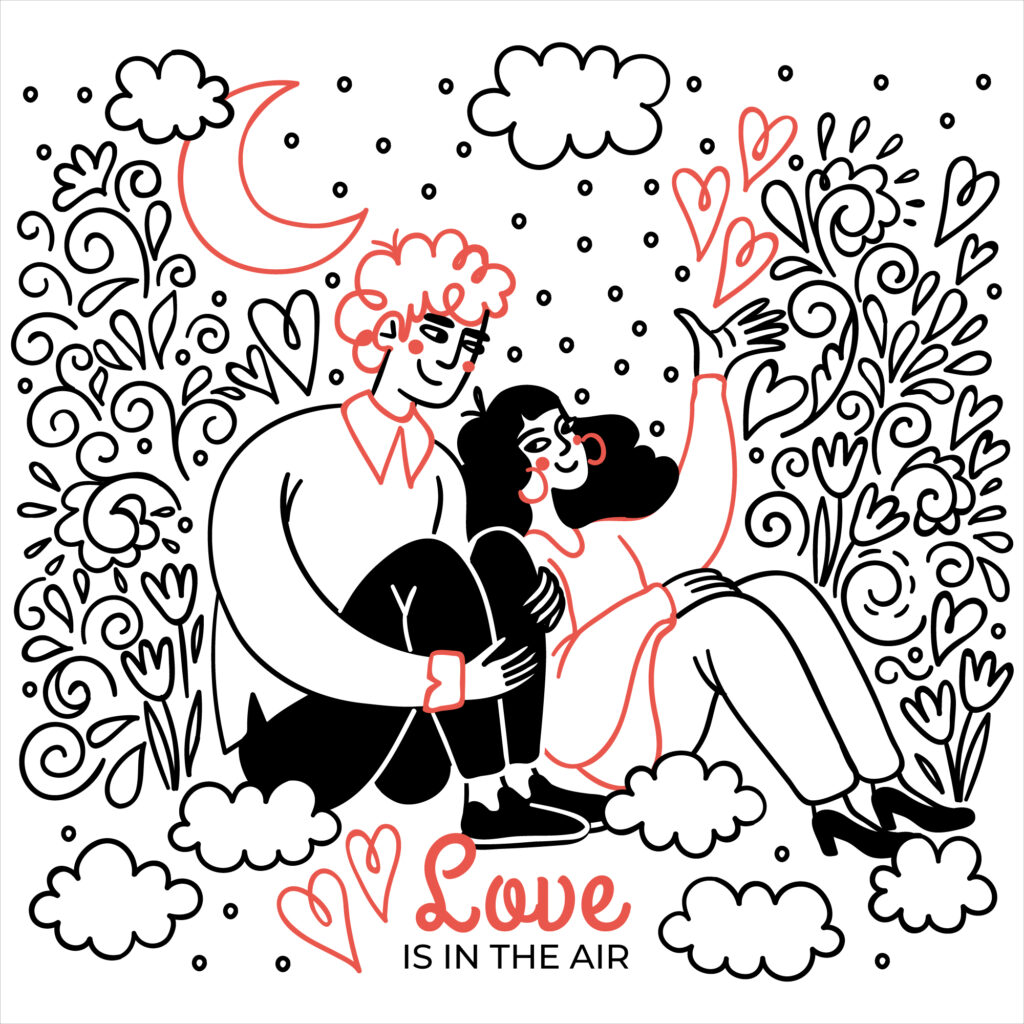Last updated on December 20th, 2024 at 01:10 pm
Love is one of the most complex and intricate emotions we can experience. It is not merely a feeling but a state of mind and being that can manifest in countless ways. We recognize the importance of creating content that resonates with readers, and we are here to explore the various meanings of love that people cherish.
Love can be expressed in countless ways, and it holds different meanings for everyone. Some individuals associate love with romantic relationships, while others may view it as a feeling of unconditional support and care from family and friends. Below are some of the most common interpretations of love:
Romantic Love

When most people think of love, they often envision the romantic kind. This type of love is the most passionate and intimate, marked by feelings of euphoria, connection, and deep attachment. It’s the love we experience when we’re in a romantic relationship with someone, and it’s often what people aspire to find.
Familial Love
For many individuals, love is primarily linked to family. Whether it is the bond between a parent and child or the connection between siblings, familial love is often marked by feelings of warmth, affection, and protection. This type of love is typically regarded as unconditional and can serve as a significant source of support and comfort throughout our lives.
Platonic Love
Platonic love refers to the affection we have for our friends and other non-romantic relationships. It is marked by feelings of camaraderie, mutual support, and shared experiences. This form of love is often overlooked, yet it can be just as powerful as romantic or familial love.
Self-Love
Love doesn’t have to be limited to our feelings for others; it can also encompass our feelings for ourselves. Self-love is the practice of accepting and valuing ourselves, regardless of our flaws or mistakes. This form of love is often overlooked, yet it can be incredibly empowering and transformative.
Universal Love
Finally, there’s universal love, which is a type of love that transcends individual relationships or situations. It embodies a sense of connectedness and oneness with the world around us, characterized by feelings of compassion, empathy, and kindness. This type of love is often linked to spiritual or religious beliefs, but it can serve as a powerful force for anyone who experiences it.
Does love mean different things to various people?
Yes, love can have various meanings and interpretations based on individual experiences, beliefs, and cultural backgrounds.
What Love Means to Someone
The meaning of love can differ from person to person, but generally, it represents an intense feeling of affection, care, and commitment towards someone or something. It can be expressed in various ways, including physical touch, acts of kindness, and emotional support. Additionally, love can be experienced and interpreted differently by individuals, influenced by their personal values, expectations, and experiences.
What is the profound meaning of love?
The deep meaning of love is complex and can be challenging to define. It is a profound emotion that encompasses strong feelings of attachment, care, and commitment toward someone or something. Love can inspire selflessness, sacrifice, and a desire to protect and nurture the person or thing that is loved. Additionally, it can be a source of joy, contentment, and fulfillment.
Why Does Love Make You Act Differently?

Love can cause people to behave differently because it is a potent emotion that influences their thoughts, feelings, and actions. It can elicit positive emotions like happiness and joy, or negative emotions such as jealousy and possessiveness. Love can motivate individuals to accomplish things they never believed possible, such as sacrificing their own interests for the sake of their loved ones or taking risks to protect and defend them.
Do people fall in love for various reasons?
Yes, people can fall in love for various reasons. Some may fall in love due to physical attraction, while others may do so because of shared interests, values, or experiences. Love can also be influenced by external factors such as social norms, cultural expectations, and personal circumstances.
Is falling in love different for everyone?
Yes, falling in love can vary from person to person. Individuals possess distinct personalities, experiences, and expectations, all of which can influence how they perceive and experience love. Some may fall in love easily and quickly, while others might take longer to cultivate deep feelings of attachment and commitment.
Conclusion
In conclusion, love holds a unique meaning for everyone, and it is essential to acknowledge and respect those differences. We believe that producing content that resonates with readers necessitates tapping into the deeper, more complex emotions we all experience. By examining the various interpretations of love, we aim to offer readers a deeper understanding and appreciation of this powerful and transformative emotion.


